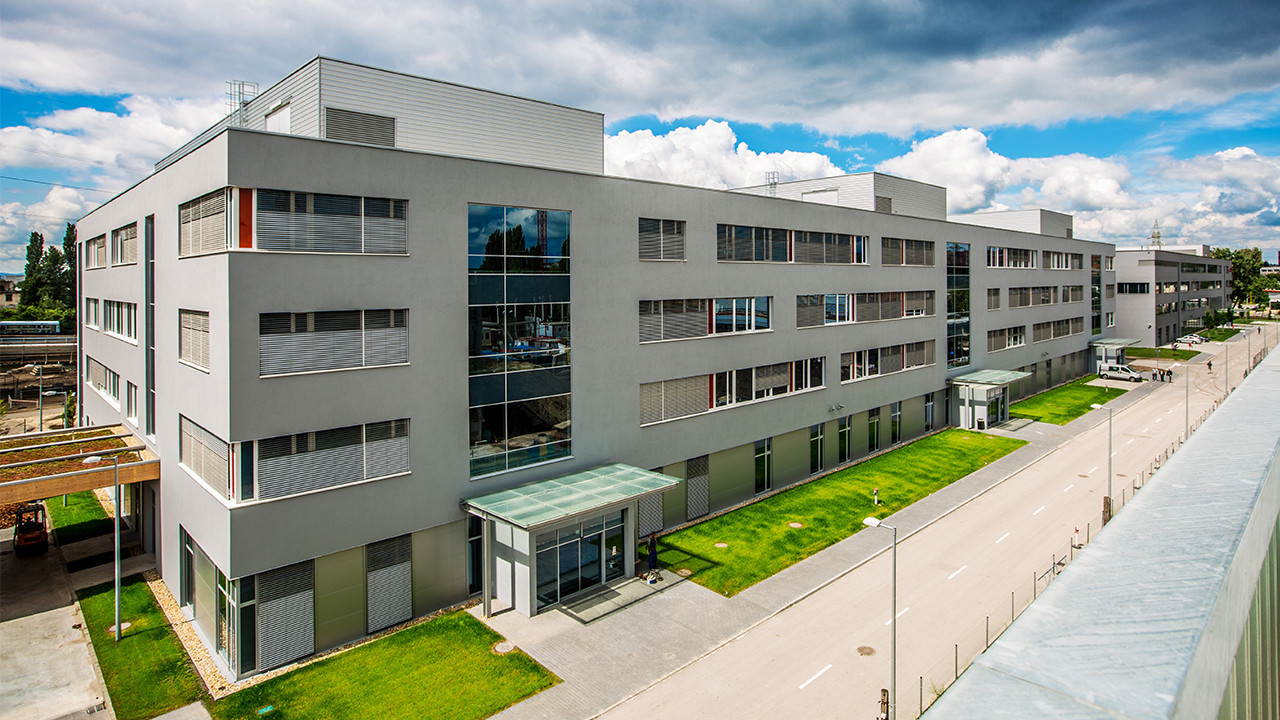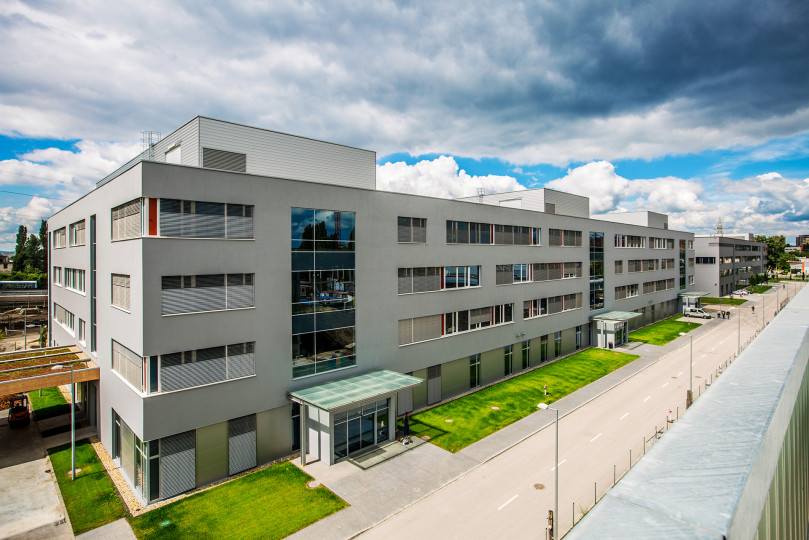Budapest, Hungary – Bosch develops autonomous vehicles at three locations around the world, including the Hungarian capital. The Engineering Center Budapest (ECB) which was established in 2005 with only one hundred associates, now employs more than 2,700 people and over one thousand engineers are engaged in autonomous vehicle development and related projects. The ECB develops components for all automotive companies worldwide and plays an increasingly prominent role in the group's activities; currently it is the only location where all six automotive divisions of the Bosch Group are represented.
In the fact that the Engineering Center Budapest has now become one of the most important players in the international automotive industry, the project titled “Automated Driving Systems Research & Development Project by Robert Bosch Kft. Engineering Center Budapest” launched in 2016 also played an important role. The main focus of the now completed five-year comprehensive programme was the development of driver assistance and automated driving systems. The complexity and relevance of the project is well indicated by the involvement of all engineering development areas, such as hardware development (electronics and mechanics), software development, system development, validation as well as testing.
The developments regarding automated driving systems were related to Passive and Active Safety systems, Driver Assistance systems, Automotive Steering and other relevant areas.
“System integration and system knowledge play a key role in shaping the future of driver assistance systems and highly automated driving” – emphasized Zoltán Szőke, project leader and Vice President Engineering XC Hungary. "Therefore, within the framework of the project, the design and development of advanced driver assistance systems, as well as interfaces between next-generation sensors – for instance LIDAR, Stereo Camera, Radar, GPS - and prototype cars were also implemented" – added the expert. In addition, Bosch engineers have developed a self-driving test vehicle fleet operating concept, which helped them to collect tens of thousands of hours of measurement data during the project on Hungarian roads and on special test courses such as ZalaZone in Zalaegerszeg.
Globally acclaimed automotive patent from Budapest
Significant developments have taken place in the framework of the project, including the traffic forecasting application, which can be considered a major achievement worldwide that uses sensors to guarantee the safety of vehicles. For highly automated vehicles, accurate behaviour predictions are essential for safe route planning, but the application also improves the performance of today's driver assistance systems. “The solution responds to the fundamental problem of self-driving, the algorithmic interpretation of different scenarios by machines. The use of the neural network enables learning of the complex interdependence of the environment and transport participants from the data” - emphasized Dr. István Szászi, Head of the Bosch Engineering Center in Budapest.
Key project in the employment of highly qualified workforce
The project contributed greatly to the fact that the number of associates of the ECB working in the field of research and development increased by about a thousand over the last five years. “The Engineering Center Budapest has become one of the flagships of Bosch in the recent years. It is a special knowledge hub involved in the most exciting vehicle development projects” - said Daniel Korioth, representative of the Bosch Group in Hungary. He also added: “the automated driving project is not only a success for Bosch, but it also strengthens Hungary's position in the automotive industry and has an economic stimulus, primarily through job creation.”
The total budget for project no. ED_16-1-2016-0004 is HUF 10,740,000,000, of which HUF 5,370,000,000 are grants. The project was implemented with the subsidy of the National Research and Development Innovation Fund.
The automotive development activities started at Robert Bosch Kft. with only five associates in 2000. The Bosch Engineering Center Budapest was officially established in 2005 and currently employs more than 2,700 people. It also controls the activities of the engineering centers in Cluj-Napoca and Sofia. According to Bosch's plans, the new 90-thousand square meter campus of the engineering center will be completed in Budapest in 2022.
Mónika Hack
+36 70 510 5516
Bosch has been present in Hungary since 1898 with its products. After its re-establishment as a regional trading company in 1991, Bosch has grown into one of Hungary’s largest foreign industrial employers with currently nine subsidiaries. In fiscal 2019 it had a total turnover of HUF 1,465 billion and consolidated sales of the Bosch Group on the Hungarian market – not counting trade among its own companies – amounted to HUF 259 billion. The Bosch Group in Hungary employs more than 15,000 associates (as of December 31, 2019). In addition to its manufacturing, commercial and development business, Bosch has a network of sales and service operations that covers the entire country.
The Bosch Group is a leading global supplier of technology and services. It employs roughly 394,500 associates worldwide (as of December 31, 2020). According to preliminary figures, the company generated sales of 71.6 billion euros in 2020. Its operations are divided into four business sectors: Mobility Solutions, Industrial Technology, Consumer Goods, and Energy and Building Technology. As a leading IoT provider, Bosch offers innovative solutions for smart homes, Industry 4.0, and connected mobility. Bosch is pursuing a vision of mobility that is sustainable, safe, and exciting. It uses its expertise in sensor technology, software, and services, as well as its own IoT cloud, to offer its customers connected, cross-domain solutions from a single source. The Bosch Group’s strategic objective is to facilitate connected living with products and solutions that either contain artificial intelligence (AI) or have been developed or manufactured with its help. Bosch improves quality of life worldwide with products and services that are innovative and spark enthusiasm. In short, Bosch creates technology that is “Invented for life.” The Bosch Group comprises Robert Bosch GmbH and its roughly 440 subsidiary and regional companies in 60 countries. Including sales and service partners, Bosch’s global manufacturing, engineering, and sales network covers nearly every country in the world. The basis for the company’s future growth is its innovative strength. At 126 locations across the globe, Bosch employs some 73,000 associates in research and development, as well as roughly 30,000 software engineers.
The company was set up in Stuttgart in 1886 by Robert Bosch (1861-1942) as “Workshop for Precision Mechanics and Electrical Engineering.” The special ownership structure of Robert Bosch GmbH guarantees the entrepreneurial freedom of the Bosch Group, making it possible for the company to plan over the long term and to undertake significant upfront investments in the safeguarding of its future. Ninety-four percent of the share capital of Robert Bosch GmbH is held by Robert Bosch Stiftung GmbH, a charitable foundation. The remaining shares are held by the Bosch family, by a corporation owned by the family, and by Robert Bosch GmbH. The majority of voting rights are held by Robert Bosch Industrietreuhand KG, an industrial trust. The entrepreneurial ownership functions are carried out by the trust.
Additional information is available online at www.bosch.com, www.iot.bosch.com, www.bosch-press.com, www.twitter.com/BoschPresse



